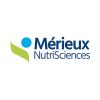According to the US Department of Agriculture, more than 300 food products were recalled last year, representing a significant 31% increase compared with 2022. The reasons behind recalls vary and include food containing contaminated items such as metal or plastic, exposure to pathogens and undeclared allergens on product labels. The Centers for Disease Control estimates that each year, roughly one in six Americans (or 48 million people) gets sick from foodborne diseases. Recalls represent one of the largest threats to a food company’s profitability and reputation. In recent years, technology solutions such as cloud-based software have been introduced to better prepare and safeguard businesses.
Supply Chain Connectivity
Despite advances in technology, many food manufacturers and processors still rely on manual tools and management across their supply chains. Manual systems can result in major issues during a crisis, including errors in inputting or updating data and miscommunication, such as being unable to quickly reach multiple vendors and suppliers at a given time.
Proper and comprehensive supply chain management is critical to food safety. In the instance of a recall, businesses must be able to quickly activate their recall management plan, disseminating important information both up and down the supply chain while documenting to meet certification and regulatory requirements. It’s key that all suppliers – local, national and international – demonstrate that they are compliant with all relevant food and market regulations. Product source information must also be tracked and searchable in records.
Robust and proactive document control can help an organization avoid recalls by quickly identifying risky suppliers or non-compliant ingredients.
Innovative Solutions Support Recalls
Several new technologies are being employed to support greater traceability and transparency across the food supply chain. With cybersecurity attacks now being a risk that can result in product recalls, more companies are investing in information security solutions to further protect their data. Certifications to standards such as ISO/IEC 27001, which has requirements for establishing, managing and maintaining an information security management system help businesses to demonstrate that they follow an international standard for managing security controls. This can provide an added level of assurance that cybersecurity risks have been identified and safeguarded.
Some companies are now using RFID to tag and track food items. QR codes and bar codes can be scanned on easily accessible devices such as smartphones and tablets, providing instant access to records to ensure traceability.
Cloud-based software also allows companies to manage complex and critical data more confidently. NSF TraQtion® is a new software solution that directs suppliers to an online portal to upload documents, complete questionnaires and communicate. Beyond supplier data, cloud-based software can also be used for recipe management and storage, tracking complaints, label compliance and setting company-wide standards. By simplifying and digitizing data, documents and records collection, leaders can instantly access information during audits and assessments, allowing for quick delivery when program documentation is requested or required.
If not properly and swiftly handled, a recall or outbreak can cost a business tens of thousands of dollars or more. By using cloud-based technology to put an easily accessible and implementable risk management plan in place, businesses can be better prepared for a food safety incident. Overall, software can minimize back-and-forth messaging, urgent data requests, meetings and calls by digitizing and streamlining both communication and documentation.
How to Select the Right Tech Solutions
When preparing for a potential recall, it’s important to be proactive. Start with identifying the pain points in the organization’s risk management plan and then see if there are tools that can be used to strengthen the plan and address its weaknesses. While some tools may require greater investment, this can pay off in the long run when you consider how detrimental recalls can be.
As we look at recalls and technology solutions, we must acknowledge that the requirement for full compliance to the Food Safety Modernization Act (FSMA) 204 rule is January 20, 2026. For those applicable, technology will play a major role in the FDA’s recordkeeping requirements and 24-hour turnaround of an electronic, sortable spreadsheet for traceability of products. In most cases, with larger-scale operations, this can only happen with the utilization of new and emerging software.
The goal of technology implementation is to create a more sustainable food system. With earlier identification and traceability of adulterated products, the removal and retrieval process from commerce will be faster and, in turn, should result in a decrease of incidents reducing illness and potential deaths.
Digital solutions will also help to fill the gaps for root cause investigations, thus more efficiently allowing for enhanced preventative actions and training to avoid recurrence. While onboarding of new technology can sometimes be costly, over time, the ROI of reduced recalls and product losses can increase revenue gains and negate the initial investment.
Food is a global commodity, and advancing technology and innovations in system processes can help move the supply chain forward in delivering safe, quality consumable products around the world. Now is the time to lead the industry forward for a safer, more sustainable future for both companies and consumers. We must invest in technology solutions within our food supply chain to continue advancing human and planet health.






